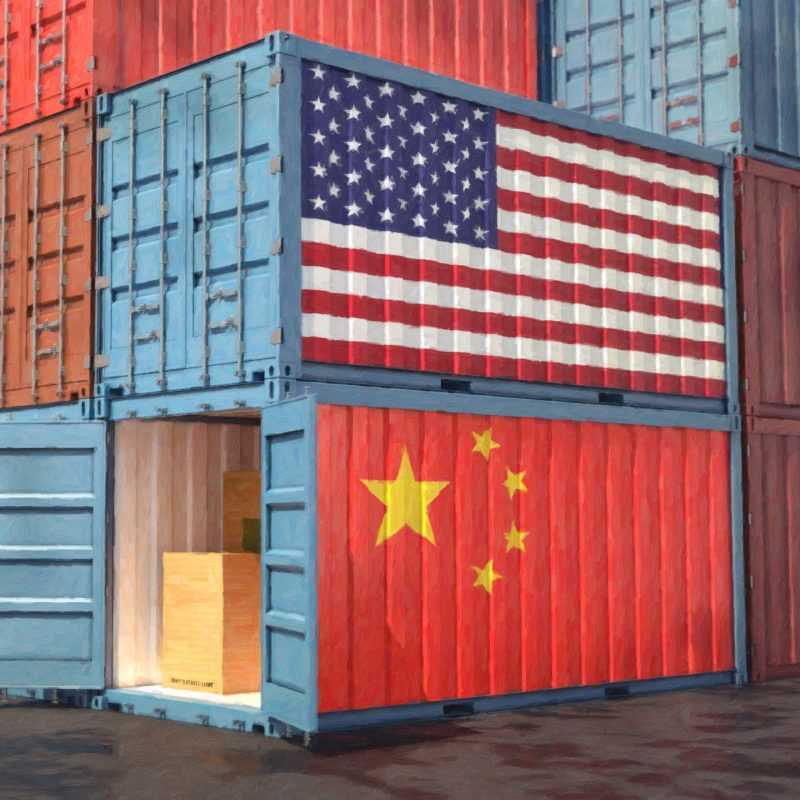
Trump 2.0 Likely to Bring Unsettled and Unpredictable U.S.-China Relations
November 8, 2024
President-elect Donald J. Trump is set to return to the White House following an election campaign where he often described China in harsh and threatening terms while presenting vague and contradictory ideas regarding his approach to U.S.-China relations.
During his first administration, Trump initiated a period of rocky U.S.-China ties, largely defined by his trade war. The president-elect has promised to go even further in his second term while hinting at a desire to strike a new trade deal. This underscores that volatility could characterize his China policy throughout the next four years.
The level of enmity present in Trump’s approach to China will be deeply colored by his Cabinet choices. The president-elect often appears less hawkish on China than some of his closest advisors. Trump’s first-term trade czar, Robert Lighthizer, is all but certain to be featured in his second-term Cabinet. Lighthizer, who may be tapped in as Treasury or Commerce Secretary, is a well-known China hawk. Following his stint as U.S. trade representative, Lighthizer wrote a book calling for complete economic and technological decoupling from China, a move that would effectively upend the global economy. Billionaire John Paulson and former Secretary of State Mike Pompeo are contenders for the Treasury and Defense Cabinet positions, respectively. Pompeo is a long-time critic of China, calling the past 50 years of U.S.-China engagement a “failure” in a 2020 speech. Similar to Trump, Paulson has flip-flopped on his China stance. This year, the billionaire backpedaled on his original criticism of Trump’s tariff plan to champion what he refers to as “a need to decouple from China.”
As vice president, JD Vance will likely try to have a say in how the Trump administration handles Taiwan. While Trump’s rhetoric on Taiwan has been confusing, Vance has articulated his belief that the United States should focus defense support on Taiwan instead of Ukraine. Trump has suggested several times that he views the U.S. relationship with Taiwan as purely transactional, at one point suggesting that Taiwan should pay the United States for defense assistance. Regardless of specific Cabinet picks, Trump is set to surround himself with loyalists in his second-term presidency. This will result in less internal debate and a more straightforward path to enacting the hawkish China policies described during his campaign.
Just before the election, the Biden administration announced new rules limiting U.S. investment in certain Chinese technology sectors. Whether or not Trump will continue to build on this foundation remains unclear, as his messaging on Chinese investment has been replete with contradictions. The Trump campaign promised to “establish new rules to stop U.S. companies from investing in China and stop China from buying up America,” implying that he favors strict investment restrictions. However, Trump has also suggested that he may welcome Chinese auto companies to build plants in the United States, clashing with growing concerns in the United States over data transfers from Chinese connected vehicles.
This is not the first time the president-elect has flip-flopped on Chinese investment in the U.S. While president, Trump drafted an executive order to ban Chinese-owned social media platform TikTok, citing national security risks. On the 2024 campaign trail, he abruptly changed his position, coming out in opposition of a bill forcing TikTok to divest from its Chinese owner or face a ban in the United States. The inconsistency of Trump’s stance on Chinese investment breeds uncertainty for both U.S. and Chinese companies with aspirations in each other’s market.
Standing before 600 business executives in October, Trump declared “tariff” his favorite word. During his first term, Trump enacted duties that sparked a prolonged economic battle with China. Based on his campaign promises—placing 60% or higher blanket tariffs on Chinese goods, revoking China’s Most Favored Nation trade status, codifying retaliatory tariffs and phasing out all Chinese imports of essential goods—trade will remain the focus of Trump’s second term China policy. U.S.-China relations during his first presidency also centered on trade. However, trade patterns look significantly different today than they did in 2016. Chinese exports have grown in reach and sophistication, with China’s export model greatly diversifying in the last four years. Under these new trade dynamics, Trump’s tariff plan would likely disrupt the U.S. economy and global trade.
Despite the threat of draconian tariff policies, Trump may return to the negotiation table for a trade deal to address what he sees as unfinished business with China. Trump’s 2020 Phase One trade deal set unrealistically high targets for Chinese purchases of U.S. goods, targets that, as expected, were not met. This left Trump disgruntled that China has not fulfilled its obligations. When the newly inaugurated president turns his attention to China next year, he will likely seek out another trade deal. However, the nature of such a deal and its ability to coexist with the promised tariffs remain entirely unclear, especially if China hawks sitting in Trump’s Cabinet favor all-out decoupling.
Trump will enter the Oval Office on January 20 with more experience than in 2016, yet that experience is not likely to translate into more predictability. Contradictions in the president-elect’s rhetoric have only increased in the lead-up to election day, rendering any analysis on the immediate direction of U.S.-China relations highly speculative. Trump’s proclivity for a unilateral approach to foreign policy will also not make his presidency any more stable, as consideration for foreign partners’ interests will not thwart abrupt political or diplomatic actions. Some Chinese academics have even suggested that a Trump presidency could undermine the U.S.-led global order and grant China greater autonomy in multilateral diplomacy. One thing remains clear amid this uncertainty: the U.S.-China relationship could be in for a bumpy four-year ride.